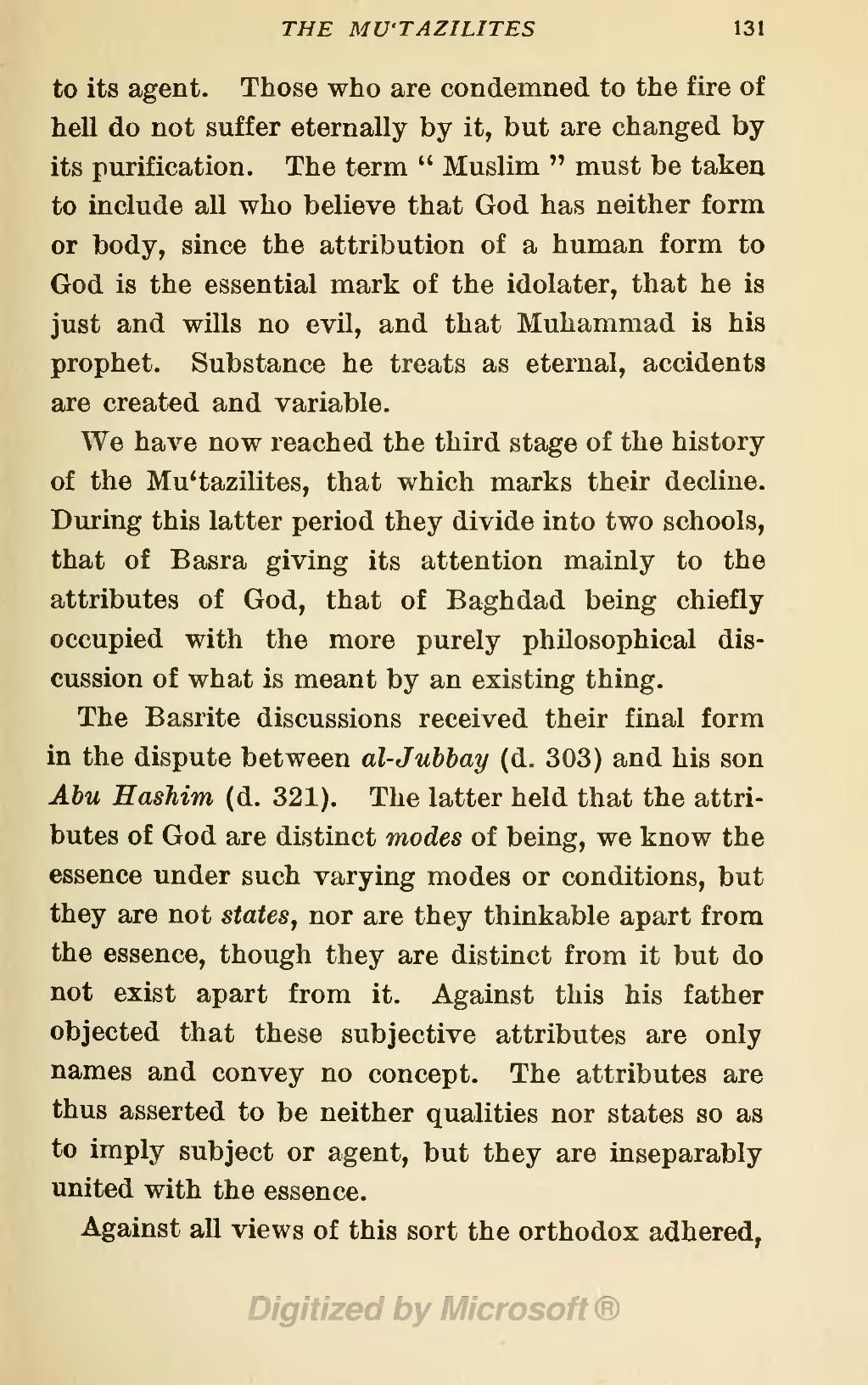to its agent. Those who are condemned to the fire of hell do not suffer eternally by it, but are changed by its purification. The term "Muslim" must be taken to include all who believe that God has neither form or body, since the attribution of a human form to God is the essential mark of the idolater, that he is just and wills no evil, and that Muhammad is his prophet. Substance he treats as eternal, accidents are created and variable.
We have now reached the third stage of the history of the Mu'tazilites, that which marks their decline. During this latter period they divide into two schools, that of Basra giving its attention mainly to the attributes of God, that of Baghdad being chiefly occupied with the more purely philosophical discussion of what is meant by an existing thing.
The Basrite discussions received their final form in the dispute between al-Jubbay (d. 303) and his son Abu Hashim (d. 321). The latter held that the attributes of God are distinct modes of being, we know the essence under such varying modes or conditions, but they are not states, nor are they thinkable apart from the essence, though they are distinct from it but do not exist apart from it. Against this his father objected that these subjective attributes are only names and convey no concept. The attributes are thus asserted to be neither qualities nor states so as to imply subject or agent, but they are inseparably united with the essence.
Against all views of this sort the orthodox adhered,
